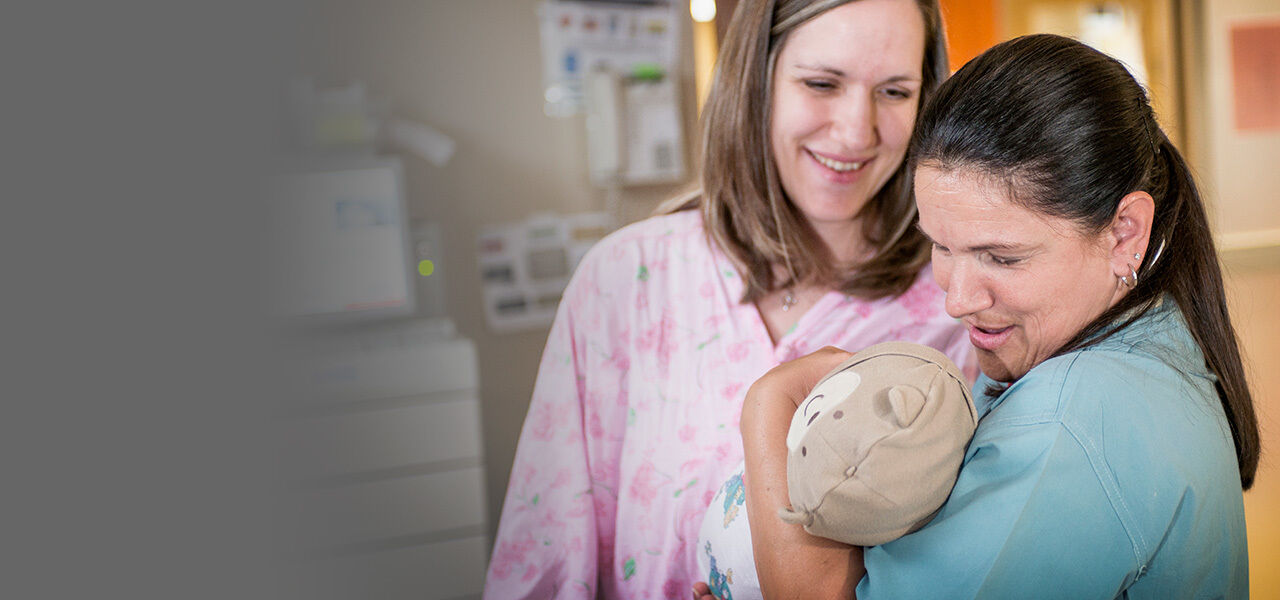

V-BAC
Vaginal Birth After Cesarean Section
The national cesarean section rate has climbed to over 30%, meaning that more women than ever before are delivering by C section. Many of these women are told that once they have a C section, their next delivery will need to be by cesarean, as well.
At Mary Lanning Healthcare, we want you to have a say in your birthing experience. That’s why our team of nurses and staff is well-prepared to assist healthcare providers from Obstetricians & Gynecologists PC with the V-BAC procedure.
For patients who qualify, the benefits of VBAC can be numerous. The patient can avoid major surgery, return to work or other activities more quickly and has a lower risk for complications during her hospital stay. VBAC is not without its own unique risks and not all patients are candidates. Each patient needs to have a detailed discussion with her doctor regarding her specific situation.
According to the Mayo Clinic, women can consider VBAC for reasons including:
- Shorter recovery time. You’ll have a shorter hospital stay after VBAC than you would after a repeat C-section. Avoiding surgery will help your energy and stamina return more quickly, as well as reduce the expense of childbirth.
- More participation in the birth. For some women, it’s important to experience a vaginal delivery. Your labor coach and others also may be able to play a greater role.
- Impact on future pregnancies. If you’re planning a larger family, VBAC might help you avoid the risks of multiple cesarean deliveries.
The chances of a successful VBAC are higher if:
- You’ve had only one prior low transverse uterine incision — the most common type for a C-section
- You and your baby are healthy and your pregnancy is progressing normally
- The reason you had your prior C-section isn’t a factor this time
- Your labor begins naturally on or before your due date
- You’ve had a previous successful vaginal delivery
The chances of a successful VBAC are lower if:
- Your pregnancy continues beyond your due date
- You have an unusually large baby — suspected fetal macrosomia
- You’ve had two or more C-sections
You’re not a candidate for VBAC if you had a uterine rupture during a previous pregnancy. Similarly, VBAC isn’t recommended if you have had a vertical incision in the upper part of your uterus (classical incision) due to the risk of uterine rupture.





